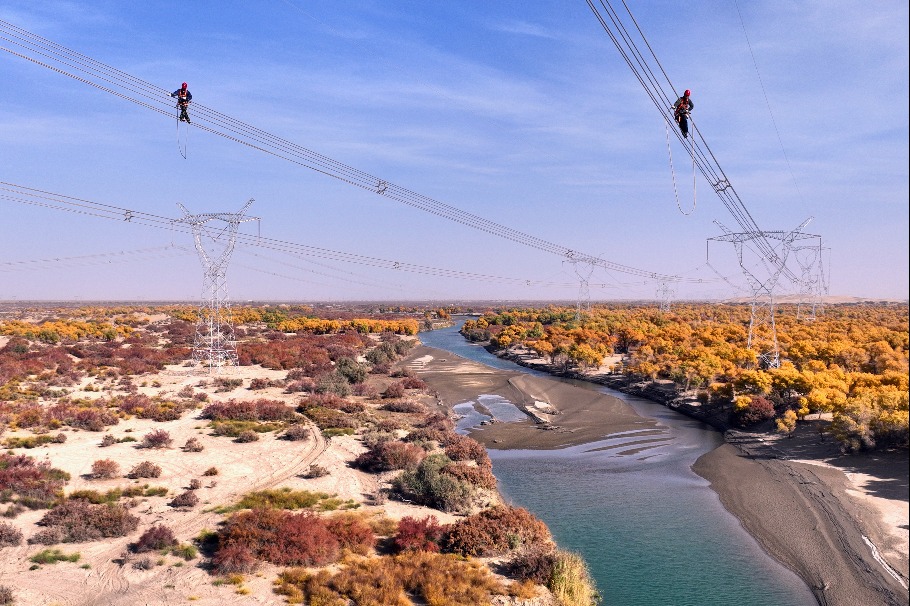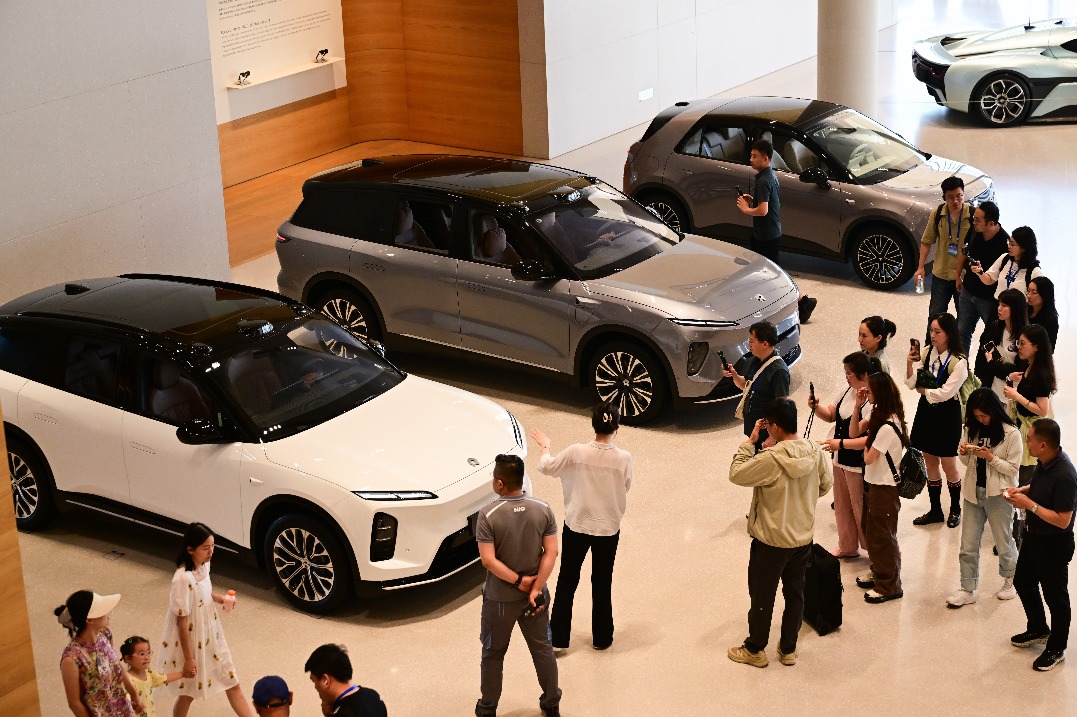Strategic autonomy of vital importance to European Union

Foreign Minister Wang Yi's weeklong working visit to Brussels, Berlin and Paris recently once again showed he is one of the world's most well-versed international relations managers with excellent diplomatic skills and deep understanding of global affairs.
While making comparisons is always a tough, and many a time unfair exercise, one is tempted to draw parallels between Wang and some of his outstanding predecessors in international diplomacy, such as Charles-Maurice de Talleyrand of France and Henry Kissinger of the United States.
He does what is expected from any capable foreign minister of any country: to protect, defend and promote his country's national interest in a resolute and purposeful but also polite and civilized manner, because the principled pursuit of national interest ultimately improves citizens' lives.
In his meeting with Wang, Belgian Prime Minister Bart De Wever, who assumed office in February this year, reaffirmed his country's commitment to multiculturalism and support for a strong autonomous European Union.
De Wever raised a very important aspect of the EU's global role — its strategic autonomy or, rather, the lack of it. It reminds me of an interesting article on the issue by the European Parliament think tank released three years ago and titled, "EU Strategic Autonomy 2013-2023: From Concept to Capacity".
According to the article, "EU strategic autonomy (EU-SA) refers to the capacity of the EU to act autonomously — that is, without being dependent on other countries — in strategically important policy areas".
It is thus correct to say that the EU-SA's aim is still a work in progress — if progress is the right word in this context. In fact, I have the impression that work on the EU's strategic autonomy desideratum has been put on the back-burner for various reasons, such as Brussels' obvious incapacity to respond to the Ukraine and Gaza crises, and Donald Trump's return to the White House and his tumultuous tariff policies in a reasonable and calm manner.
No doubt, the international community would benefit from a mutually beneficial cooperative relationship between the world's largest trader of goods (China) and its largest trader of services (the EU), not least because China and the EU together represent 23 percent of the world population.
In his separate meetings with European Council President António Costa and European Commission President Ursula von der Leyen, the two sides reaffirmed their support for multilateralism.
It is obvious that China regards the enhancement of the EU's strategic autonomy as an important element of its foreign policy and approach toward the development of international relations.
Wang's remarks are a broad hint to all those in the EU who are alleging that China poses a threat to the bloc. Regrettably, the unashamedly racist claim that China is an existential threat to the West still rears its ugly head occasionally in Western Europe and North America.
China and the EU depend on each other, need each other, and therefore should cherish their relationship based on a realistic and pragmatic approach, instead of resorting to so-called value-driven foreign relations that are ineffective and unrealistic, ultimately undermining an economy's core security and economic interests — the low-income earners potentially being the first victims of the "value-driven" foreign policy approach, apart from the virtually inevitable hypocrisy and mendacity involved.
Besides, I am convinced that in politics, values only make sense within their specific social, cultural, economic and religious contexts. Without these, they are just hot air.
Moreover, the "value-driven" foreign policy approach can also be seen in the West's attempt to foist its political values on the Global South. Colonial habits do, indeed, die hard. I hope the new German government will again pursue a foreign policy based on realism, pragmatism and mutual respect, because there's no virtue in mounting the high horse of morality.
On the final stop of his European tour, Wang separately met with French Foreign Minister Jean-No?l Barrot and President Emmanuel Macron.
Wrapping up my impressions of Wang's recent successful EU tour, I would like to highlight two of the realistic and pragmatic pieces of advice he gave his hosts — showing mutual respect, seeking common ground while reserving differences, and acknowledging that it is natural for differences to exist, and yet enhancing understanding and mutual trust, and taking a rational view to the differences.
Indeed, this is the right way forward for China-EU relations. The whole world would benefit from amiable, mutually beneficial ties between China and the 27-nation bloc.
The views don't necessarily reflect those of China Daily.

The author is director of the Macau Post Daily.
Today's Top News
- Residents' needs given priority in urbanization
- US tariff war a wild goose chase
- Xi congratulates Jennifer Simons on election as Surinamese president
- Australian PM's visit aims to boost cooperation amid global challenges
- China says response to Japanese planes' actions reasonable, professional
- Wang calls Rubio meeting constructive






























